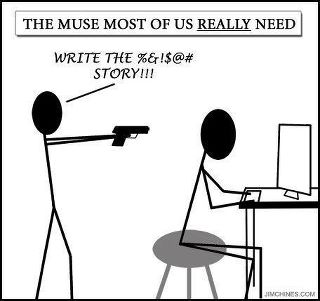Your Legacy is Now
Life is not a search for meaning from others, it’s about the creation of meaning for yourself.
For over 30 years Alan Weiss has consulted, coached, and advised everyone from Fortune 500 executives, state governors, non-profit directors, and entrepreneurs to athletes, entertainers, and beauty pageant contestants. That’s quite an assortment of people, and they run into the thousands. Most of them have had what we euphemistically call “means,” and some of them have had a lot more than that. Others have been aspiring and with more ends in sight than means on hand.
Alan Weiss states:
I’ve dealt with esteem (low), narcissism (high), family problems, leadership dysfunctions, insecurities, addictions, and ethical quandaries. And I’ve talked about them through the coronavirus crisis. But don’t get the wrong idea. About 95% of these people have been well-meaning, honest (to the best of their knowledge), and interested in becoming a better person and better professional. Otherwise, they wouldn’t be talking to me.
I found the equivalent of the “runner’s wall” in their journeys, where they must break through the pain and the obstacles and then can keep going with renewed energy and spirit. But runners know how far they must go after the breakthrough, be it another half lap or another five miles. There is a finish line.
I’ve found that people in all positions, even after the “breakthrough,” don’t know where they are in the race, let alone where the finish line is.
They do not know what meaning is for them. They may have money in the bank, good relationships, the admiration of others, and the love of their dogs. But they have no metrics for “What now?” They believe that at the end of life there is a tallying, some metaphysical accountant who totals up their contributions, deducts their bad acts, and creates the (hopefully positive) difference.
That difference, they believe, is their “legacy.”
But the thought that legacy arrives at the end of life is as ridiculous as someone who decides to sell a business and tries to increase its valuation the day prior. Legacy is now. Legacy is daily. Every day we create the next page in our lives, but the question becomes who is writing it and what’s being written. Is someone else creating our legacy? Or are we, ourselves, simply writing the same page repeatedly?
Or do we leave it blank?
Our organic, living legacy is marred and squeezed by huge normative pressures. There is a “threshold” point, at which one’s beliefs and values are overridden by immense peer pressure. Our metrics are forced to change.
In an age of social media, biased press, and bullying, we’ve come to a point where our legacy, ironically, is almost out of our hands.
Yet our “meaning”—our creation of meaning and not a search for some illusive alchemy—creates worth and impact for us and all those with whom we interact.
 Used with permission, © Jim Hines 2011 (www.jimchines.com).
Used with permission, © Jim Hines 2011 (www.jimchines.com).
 0
0

 Used with permission, © Jim Hines 2011 (www.jimchines.com).
Used with permission, © Jim Hines 2011 (www.jimchines.com).
Wayne Botha
Hilarious. So true. My first thought was “Oh! Now that you put it like that…”
Ron Kaufman
Reposted from http://sethgodin.typepad.com/seths_blog/2011/09/talkers-block.html
Talker’s block
No one ever gets talker’s block. No one wakes up in the morning, discovers he has nothing to say and sits quietly, for days or weeks, until the muse hits, until the moment is right, until all the craziness in his life has died down.
Why then, is writer’s block endemic?
The reason we don’t get talker’s block is that we’re in the habit of talking without a lot of concern for whether or not our inane blather will come back to haunt us. Talk is cheap. Talk is ephemeral. Talk can be easily denied.
We talk poorly and then, eventually (or sometimes), we talk smart. We get better at talking precisely because we talk. We see what works and what doesn’t, and if we’re insightful, do more of what works. How can one get talker’s block after all this practice?
Writer’s block isn’t hard to cure.
Just write poorly. Continue to write poorly, in public, until you can write better.
I believe that everyone should write in public. Get a blog. Or use Squidoo or Tumblr or a microblogging site. Use an alias if you like. Turn off comments, certainly–you don’t need more criticism, you need more writing.
Do it every day. Every single day. Not a diary, not fiction, but analysis. Clear, crisp, honest writing about what you see in the world. Or want to see. Or teach (in writing). Tell us how to do something.
If you know you have to write something every single day, even a paragraph, you will improve your writing. If you’re concerned with quality, of course, then not writing is not a problem, because zero is perfect and without defects. Shipping nothing is safe.
The second best thing to zero is something better than bad. So if you know you have write tomorrow, your brain will start working on something better than bad. And then you’ll inevitably redefine bad and tomorrow will be better than that. And on and on.
Write like you talk. Often.
Alan Weiss
Thanks, Ron, very good points.